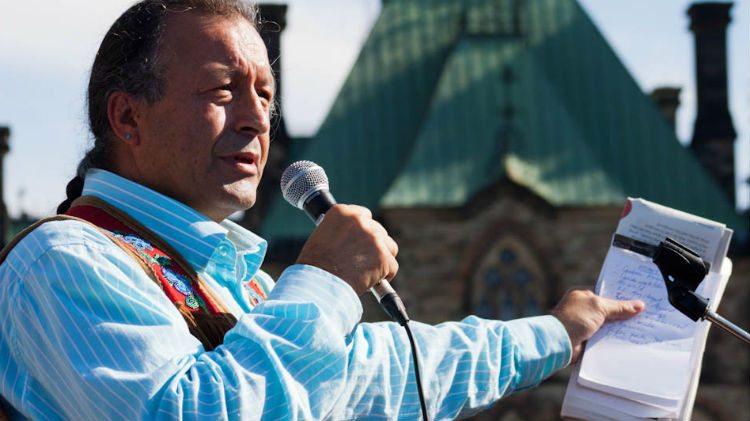Assembly of First Nations (AFN) leaders are in Inuvik this week to discuss the growing concern of climate change in their communities, and whether or not they should participate in the United Nations conference on climate change next month alongside Prime Minister Justin Trudeau.
“When the prime minister goes there he speaks on behalf of the provinces and the general public, but he doesn’t speak on behalf of Indigenous people,” said Bill Erasmus, AFN Regional Chief.
“As Indigenous people we are nations, we do have collective rights that are recognized internationally, and we have to speak on our own behalf. We have to develop a mechanism that has our people heard at the ground level.”
Thursday’s meeting heard stories from Indigenous community members discussing the changes to the environment they’ve witnessed recently.
Erasmus told Moose FM people have reported seeing changes to water levels in their communities, and have seen different plants, animals and birds pop up in areas they never had before.
These, he says, are the realities of climate change.
“Climate change is real, global warming is happening and collectively we have to work together to have a better future for our young people.”
Chiefs discussed how to deal with the impact of climate change. They also discussed the Paris agreement that was adopted by nearly 200 countries, Canada included, last year that lays out a plan to limit global warming.
RELATED: MP McLeod endorses Paris agreement, wary of carbon tax
RELATED: Hybrid micro-grids can reduce NWT carbon emissions: Report
Next month’s global meeting in Marrakech, Morocco is said to be the next step in the process of moving this agreement forward before it takes effect in 2020.
Today, chiefs looked at options of how Indigenous representatives will be able to participate in the UN conference.
‘This can’t be done in isolation’
Erasmus says that constitutionally, Indigenous people are a “separate entity” from the Canadian government, and as such should have their own seat to have their voices heard.
“We all have authority and jurisdiction in different parts of the constitution,” said Erasmus. “Internationally that has to be implemented.”
While Erasmus says that some of the issues the prime minister will discuss are very similar to their own, Indigenous people need to be consulted on carbon trading and other deals that affect the land.
According to him, the government cannot go forward with a deal on carbon trading unless they talk to the First Nations people who have treaty rights on those lands.
“This can’t be done in isolation,” he said. “There needs to be a full national discussion on what kind of an energy plan we want and what kind of a sustainable green economy that we ought to be looking at.
“It’s going to take some time and it’s going to take some energy and it’s going to take an approach that makes sense to all of us.”
Erasmus called Thursday’s discussion a work in progress, but he’s glad people are now talking about it. Ultimately, he says, this is a discussion for the future – not just next month, but for generations to come.
“Really it’s not about [us], it’s about our future children and their grandchildren,” he said.
“We know that young people are very worried about what kind of future it’s going to be because climate change is man-made, it’s not a phenomenon of nature. If it’s man-made, we need man-made solutions.”





